Thoughts on my 42 Days in Brazil
Examining my time in São Paulo & Brazil, July 29-September 8, 2018
(slightly redacted version)
—————————————————————
Minding the Gap
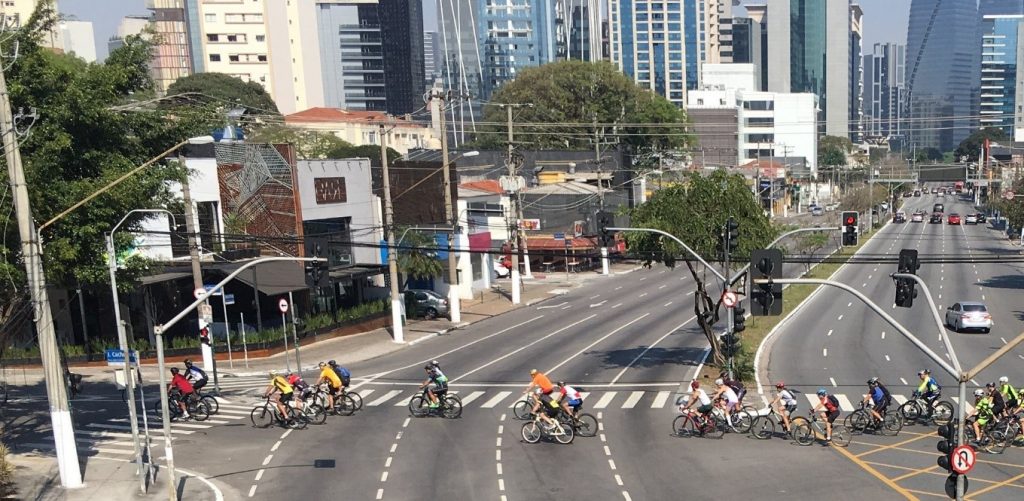
The State Department asked me to “hold the post” in São Paulo, to cover an unusually long gap between American officers in the public affairs role. They needed someone who could step in w/o missing a beat and then as easily step out again when the work was done. My experience meant I could do it and my love of Brazil meant I would do. They needed me to stay in São Paulo for 42 days. That was my mission.
The mission that I set for myself was a little more than merely minding the gap. The mission I assigned myself was (switching metaphors) to grow the pie with an energetic program of outreach to meet important people, especially those the USG had chosen for exchanges in times past, and to engage them again. Diplomacy is about engaging people. I wanted to see and hear about what had happened with those we engaged. This had the added benefit of keeping out contact network alive and vital. In diplomacy, sometimes just being there is the job. Very often the process of setting up and attending meeting is also the product.
During my too-brief time in Brazil I had in depth contact with dozens of interesting and important people, and more fleeting contact with literally hundreds more. I feel I earned the “vast sums” the State Department spent to send me here. An important truth I learned in the FS was that our individual efforts disappear like tears in the rain unless we pass them along by writing notes. I wanted to examine the experience, as well as document it. I wrote notes about some of the more interesting meetings. So as not to stall the narrative, I will make only passing references to them.
We Americans sometimes complain that people in other countries do not like us, or at least not properly appreciate us. This has not been my experience. Of course, nobody is universally liked, and everybody can find something not to like in a great and active power like the United States of America, but my interactions were generally friendly, from taxi drivers, to youth reps to professors or officials local and national. It may be a blow to American ego, but most people do not think about America most of the time. This means that they are often not aware of the good we do around the world or about those things we are less proud to have done or tolerated. Brazilians are certainly not uninterested in the USA, but their interest in the details of our politics or society is not as acute as we might hope or fear.
Soft Power
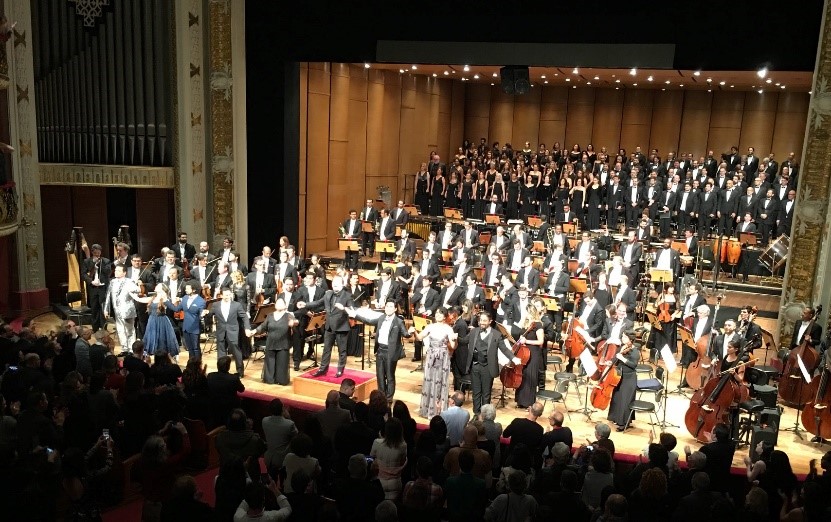
That is not to say America is absent. On the contrary, America is ubiquitous in Brazil. This is soft power and exercising soft power is like trying to nail Jell-O to a wall. So maybe we should just appreciate it for bringing our countries closer. The irony is that Brazilians sometimes do not think about American culture as American. I know this sounds odd but consider our own consumption of foreign culture. When we watch Downton Abby, we are not thinking “Ah British culture,” at least I am not. We are not appreciating the Germans when we listen to Beethoven, nor are fans of manga usually thinking much about the Japanese. Yet these are indeed vehicles for cultural expression and could be said to be transmitters of soft power. Rather than being purveyors of these cultural products, a good diplomat can tag along with them, using them to help make connections. If we want to look like we are leading the parade, we can get in front, but it rarely depends on us.
For example, the São Paulo Symphony Orchestra played a tribute to Leonard Bernstein, including selections from Candide, West Side Story, Slava & On the Town. Good to see American culture showcased in Brazil. The concert was at the beautiful São Paulo Municipal Theater. The Consul-General and I attended the concert, as guests not sponsors. Yet we could have achieved no more if we had covered the costs and been the impresarios. The Conductor praised Bernstein and implicitly the culture that produced him. They brought a 1950s era Ford Fairlane as a prop outside the venue. People lined up to take their pictures with it. It would be one of the year’s highlights if the Consulate-General had organized the event, but all we needed do was be there to enjoy the music and the praise. Of course, it does make it better if we officially attend. Showing appreciation for the work of others is more than just good manners: it is an influence enhancer. As the old Yogi Berra joke goes, “Always go to other people’s funerals; otherwise they won’t go to yours.”
Talking to Those Our Programs Touched
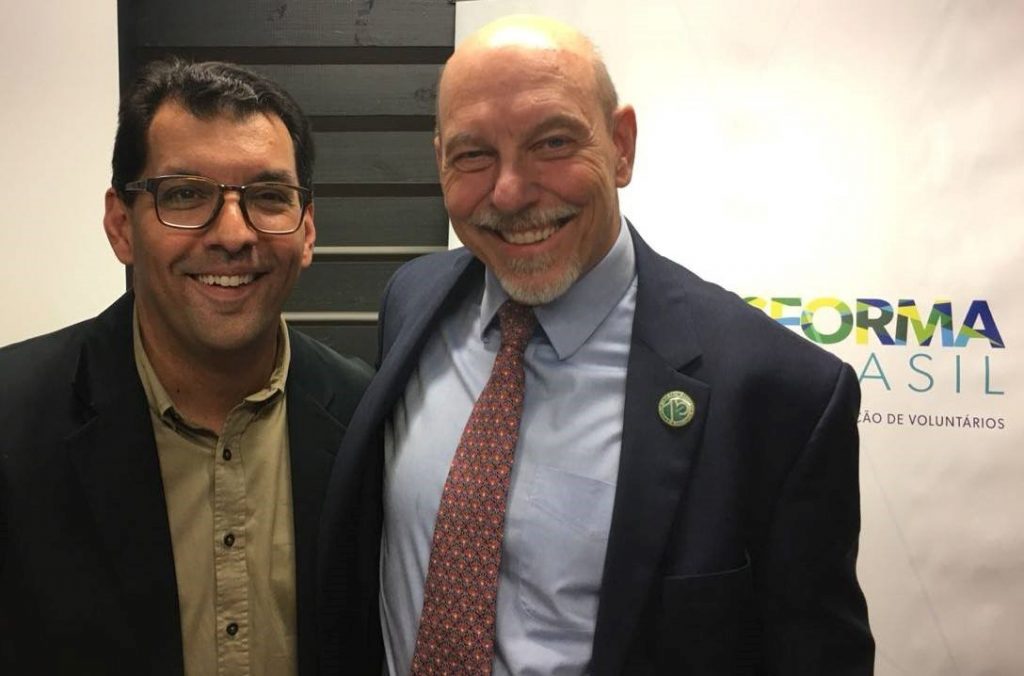
We cannot deeply engage with large general audiences, like the hundreds that attended one of the Bernstein concerts (plural – it was a series). My focus and effort were on a subset of the general population – Brazilians who had been directly touched by one or more of our USG programs. This included IVLPs, youth exchanges, Fulbright and speaker programs. These programs are resource intensive for the USG. I was confident that participants would have great and good stories to tell, but I did approach with my research with a twinge of trepidation.
Full disclosure – I am a true believer in the value of exchange. What if it turned out that the exchanges did not work? I would certainly suffer a crisis of faith. And what does it mean to say that they did work anyway? I settled on a general idea that an exchange worked to the extent that it improved Brazilian-American relations, provided lasting connections between our two nations and produced desirable outcomes in Brazil or the USA, preferably both.
My fears were unfounded, and faith rewarded. I understand that my sample was small and not random, biased toward those who had been successful, since they would be the ones easiest to talk to and mostly likely to want to talk with us. But I found enough great results to make up for the less successful instances I might have missed. This was not my first foray into this territory. As public affairs officer in Brazil (2011-14), I made a special effort to reach out to former exchange participants whenever I traveled. With no exceptions (and I mean zero exceptions), the returnees talked about their experiences in glowing terms, often calling them life changing. But this time I was looking for a little different angle. Besides asking what they visit had done for them, I was also looking for the longer-term impact on Brazilian-American relations and on common aspirations of our nations.
Some of the Brazilians I met came back from their exchanges decades ago. There was even one that I would call a second-generation beneficiary, who represents Harvard in Brazil, told me that her father had been an IVLP (or whatever it was called in those day) in the 1970s. His experience made an impression on him and his family, i.e. her, making connections with the USA seem much more normal and natural. Others, especially many of the youth exchange participants were newly returned within the last couple of years, sometimes months. To address first criteria – improvements of Brazilian-American relations – these exchanges were a clear success in that we could easily access these important Brazilians. They all took our calls and were happy to talk to us. This fact alone satisfied the requirement that the exchange be useful for Brazilian-American relations.
Our one serious glitch actually illustrates the power of the program. I reached out to former IVLP a Brazilian federal judge famous for the prosecution of the crimes identified in the Operation Car Wash (Portuguese: Operação Lava Jato), a case of high-profile scandals of corruption and bribery involving government officials and business executives.
He participated in an IVLP where he visited U.S. agencies and institutions responsible for preventing and combating money laundering. It is widely appreciated that this guy acted with remarkably strong ethics and probity, even going against members of his own party to root out corruption. This series of investigations resulted in the impeachment of a sitting president and the conviction and incarceration of a former one. Did his IVLP affect his thinking and action? I cannot know for sure because we did not discuss it, could not discuss it. He accepted my invitation to talk (a plus for the program’s reach) but we decided that it was not a good idea for representatives of the USG to be talking to someone with such a high profile when some of those affected by his opinions were involved in upcoming elections. Strong circumstantial evidence, however, points to a program success. At least that is what it looks like to me.
IVLP
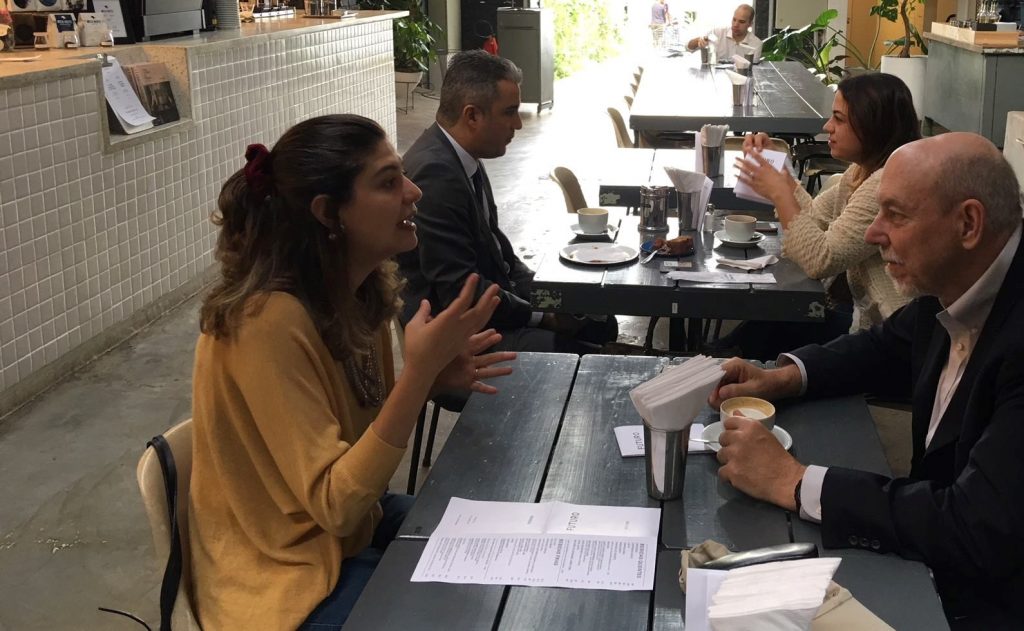
I spent many hours talking to alumni and have a few observations to share. Let me start with IVLP alumni. You can see more detail in my write-ups at the end. They were doing all sorts of valuable things along the lines of their programs and keeping contact with Americans, not only with USG, enhancing the common good. One participant had started a blog and movement to tell women’s stories of the challenges with sexism in the workplace and with life. She was not only inspired by American counterparts but was clearly inspiring some of them. A true continuing exchange. Another was using information she had gathered on her IVLP sojourn and working still with American colleagues to identify illegally harvested wood. American colleagues were learning from her and often together they were taking insights arrived at in the collaborations to other countries around the world where tropical forests were threatened. These efforts are helping us effectively enforce our own American laws, like the Lacy Act. During a program on volunteerism, I was embarrassed by the praise heaped on the USA by participants. They said things about us that none of us could have said. The program was the launch of a volunteering platform, expected to reach millions of Brazilians created by an IVLP alum whose program had been on volunteerism a few years back. BTW, this was the national launch. He already had created or inspired a half dozen such projects on the state level. We met an IVLP whose visit centered on addressing toxic waste in water and soil and was now facilitating USA investment, among other things, by inspecting and remediating brownfield sites.
In short, among IVLP alumni I found nothing but success and mostly resounding success.
Youth
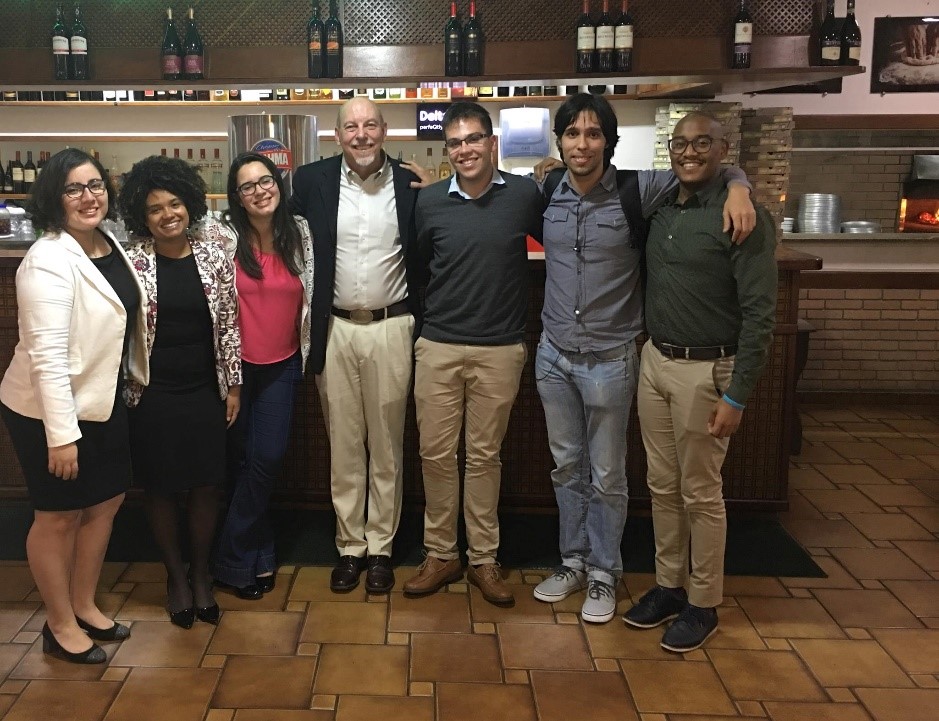
Brazil’s flagship youth exchange is the Youth Ambassador Program. This has been going since 2002 and remains highly competitive, often with more than 10,000 applicants for 50 slots. Since 2006, the Mission sponsored English immersion courses for runners-up and hundreds of young Brazilians have enjoyed the benefits. Our binational centers, American Centers and EducationUSA branches all participate, drawing participants from all the regions in Brazil. It would be easy to take all or most of the participants from places like São Paulo or Rio, only from big cities, but emphasis on Brazil-wide inclusion makes the program more effective. Youth Ambassadors and related programs have now affected hundreds of young Brazilians and the earliest recipients are now in their early and mid-30s. More recently we have been doing Young Leaders of the Americas Exchanges (YLAE) for aspiring entrepreneurs.
During my 42 days in Brazil I spoke with dozens of Youth Ambassador Alumni and have been in contact with more. These supplement and update my previous contacts as PAO in Brazil 2011-14. Whenever I traveled, I made a point of inviting local youth alumni to pizza lunches. Then and now, I found uniform success. Youth touched by our programs had become successful and all were grateful for the experience. “Life changing” was the way I heard the programs described again and again. But there is more. Many alumni are now in positions of significant authority in business, government and in NGOs. One Youth Ambassador Alum is running for Congress in this elections cycle. We have a strong network throughout Brazil and one that is growing in both size and importance each year.
I spoke to a few Youth Ambassador Alums about “reach back.” How did they think that their experience affected their larger communities? This was important, since all of them came from challenging circumstances. It is gratifying to give a few a chance for a better life, even better if the ripples of their success move others along. I got thoughtful and sometimes inspiring answers. All thought (hoped) that the power of their example was helpful, but most had actually reached back with concrete effort. One very good example was a YA who right after coming back set up a leadership program in high schools in his state. The program he set up in his own high school reached an estimated 800 kids and it inspired the creation of a network of seven similar programs throughout the state. The idea is to make the kids agents of positive change. I am not sure how we can measure that, since in the process of expanding the programs and ideas are adapting to local conditions and so becoming harder to trace. I am sure that the effects are real, persistent and positive.
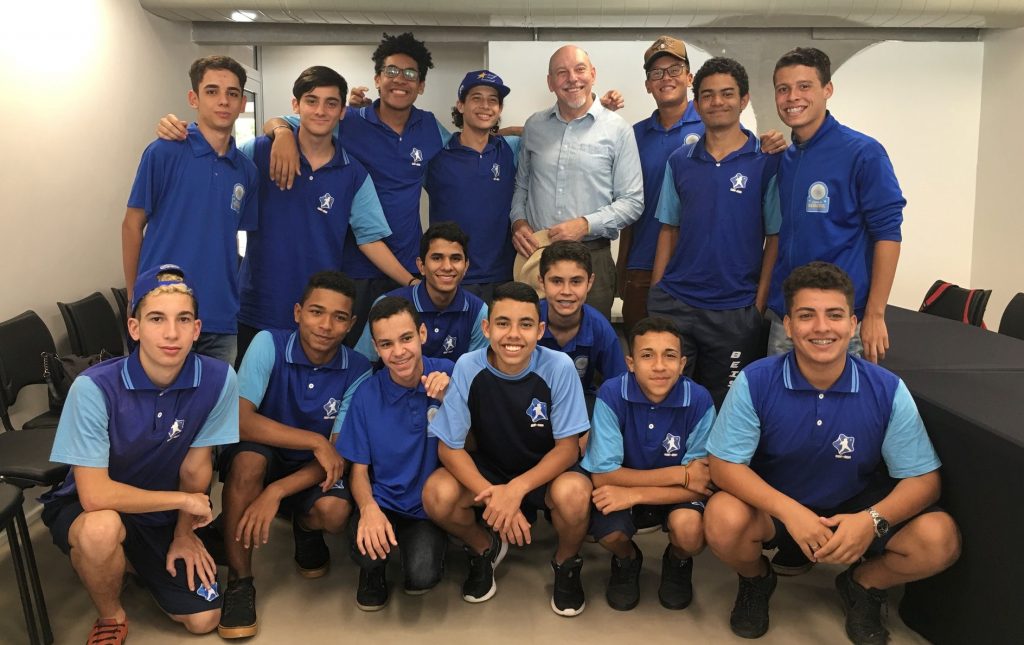
Speakers
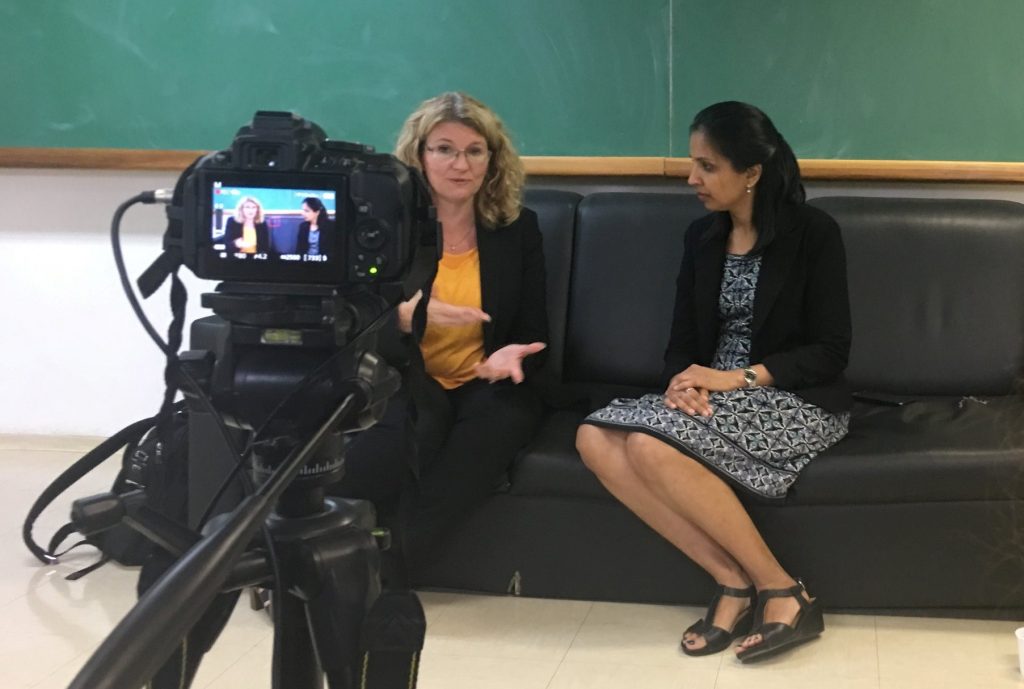
During my time here, I had the chance to attend only one speaker program, this on bio mathematics. This visit satisfied a couple of our goals. First was the simple connections principle. One of the most important functions of diplomats is that we act as connectors, putting Americans in touch with counterparts in other places. Connectors play a key role in the information ecosystem but they (we) are easily overlooked or dismissed. I have confidence that the follow up will be significant and lasting. Second was the USA example of women in STEM.
I also had an experience that I will credit as a speaker program but let me explain the trajectory. It was gratifying to meet Jeremy Buzzell, Chief for the Accessibility Management Program at the National Park Service, maybe more a vindication of old school people-to-people diplomacy. I connected Jeremy Buzzell with Juarez Michelotti, from SESC São Paulo at the request of then former State Department colleagues, former since this was 2016 and I had just retired from FS. For me it was a simple matter of looking up on the internet making a few calls. USG is USG no matter the branch. I did not know the particular people at the Park Service, but I know how the system works generally. It was harder for Brazilian friends. Imagine how it would be to find similar Brazilian officials for someone outside the structure. Anyway, I called Mr. Buzzell, made the connection and mostly forgot about it. I did keep in sporadic contact with Juarez, however, because of my personal interest in his work of ecological restoration of Brazil’s Atlantic forests, and when I came on my sojourn to São Paulo I got in touch to with him to meet him in person and maybe see the forests. So, my colleague Joyce Costa and I arranged to go. With the date set Juarez gave me the good news that coincidentally Mr. Buzzell would also be there helping them with a program on accessibly.
Education
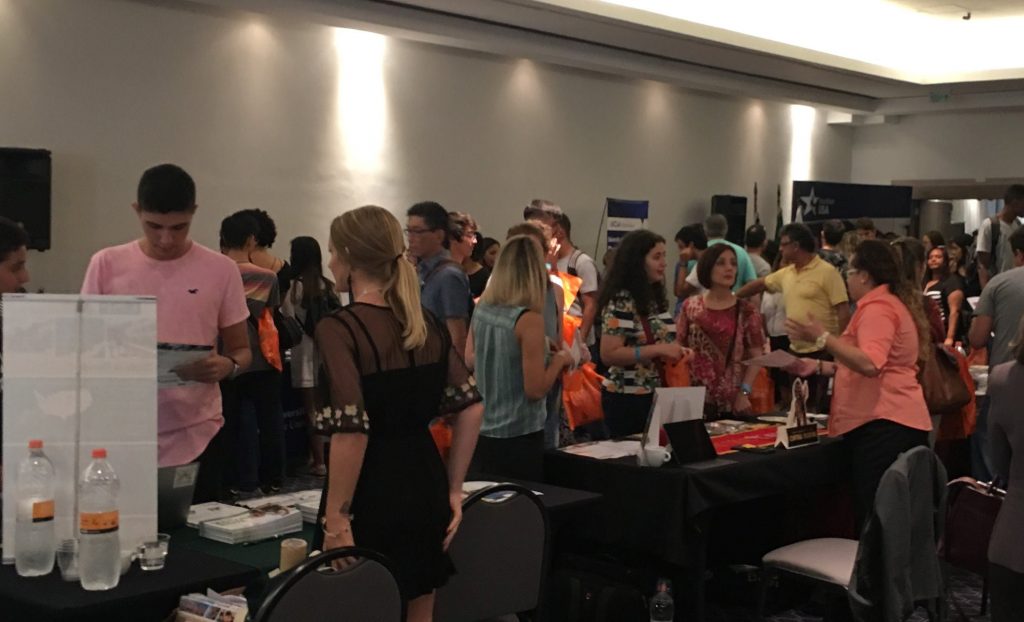
The high point of my FS career came with my involvement with the Brazilians Science w/o Borders program. I am morally certain that the Mission’s quick and sustained support was instrumental to the program’s success. Ultimately around 33,000 Brazilian students went to the USA on this program. It contributed an estimated $1.5 billion into the American higher education economy and the benefits of long-term contact I believe will be immense.
Unfortunately, I was unable to do extensive meetings with returned students, since they had dispersed throughout Brazil. I did, however, talk to Luiz Loureiro, executive director of Fulbright in Brazil, and with academics who worked with the program. I became aware of a Brazilian Academy of Sciences study that determined that around 20% of SwB participants went on to advanced degrees, compared with only around 5% of similarly situated students who did not go on the program. The researchers also reported an even greater positive impact on low income participants when compared to their peers. The study found it too early to say definitively, but so far it looks like a success. That comported well with my anecdotal evidence. I have reasonable faith that sending more than 30,000 Brazilians to study STEM in the USA is bound to produce good results. The only caveat in the studies I read were concerns that that the money committed by the Brazilian government might have been better deployed in improving primary education. That is a value judgement about which I will not voice an opinion.
Interest in studying in the USA declined with the ending of the SwB program in 2016, no surprise there, but has since rebounded. I was able to attend an EducationUSA event in São Paulo where around 2500 prospective students showed up. Our EducationUSA offices throughout Brazil are showing increases, according to director Rita Moriconi. She is considering opening a new one in far off state of Acre. We opened one in distant Roraima during my last months in Brazil and it is still going strong.
English Teaching and BNCs
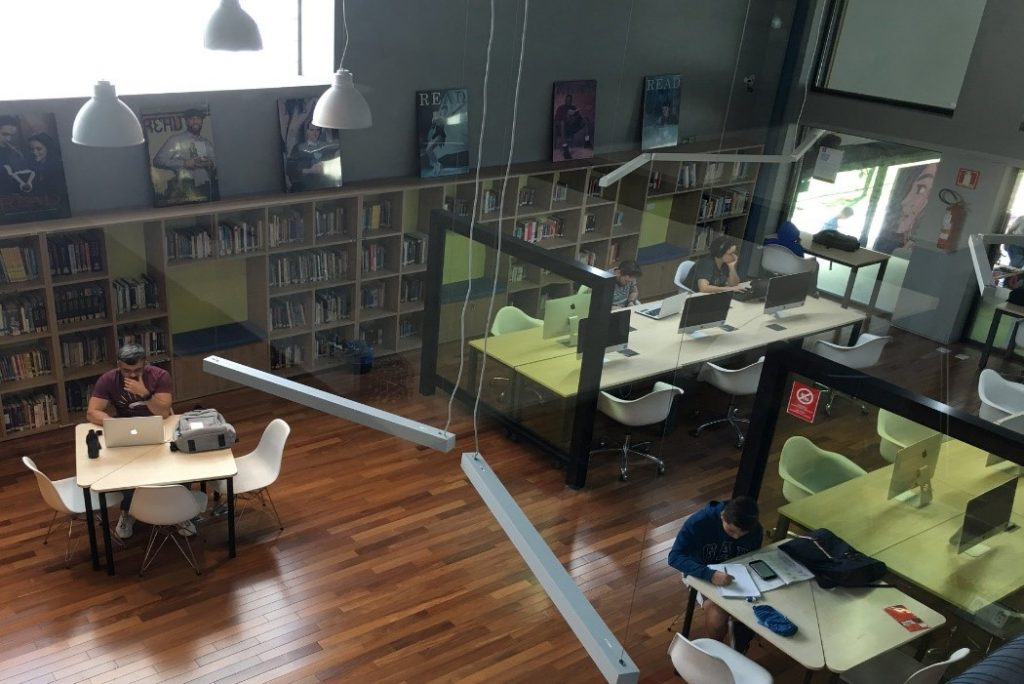
I was able to visit three BNCs: Casa Thomas Jefferson in Brasilia, Cultural in Porto Alegre and had a long visit with Silva Helena Correa, who directs Alumni, the BNC in São Paulo. I spoke to a group of Access Students in Porto Alegre and to English teaching through sports at SESC in Bertioga in São Paulo state. Our programs are strong. Particularly impressive is the maker space in Brasilia that was built in cooperation with Casa Thomas Jefferson, Smithsonian and Mission Brazil. I wrote more extensively about the maker space in an earlier post. Rather than risk stalling the narrative again, I refer you to that. It also has pictures.
And Just Because it’s Fun …
A Visit with an Old Colleague
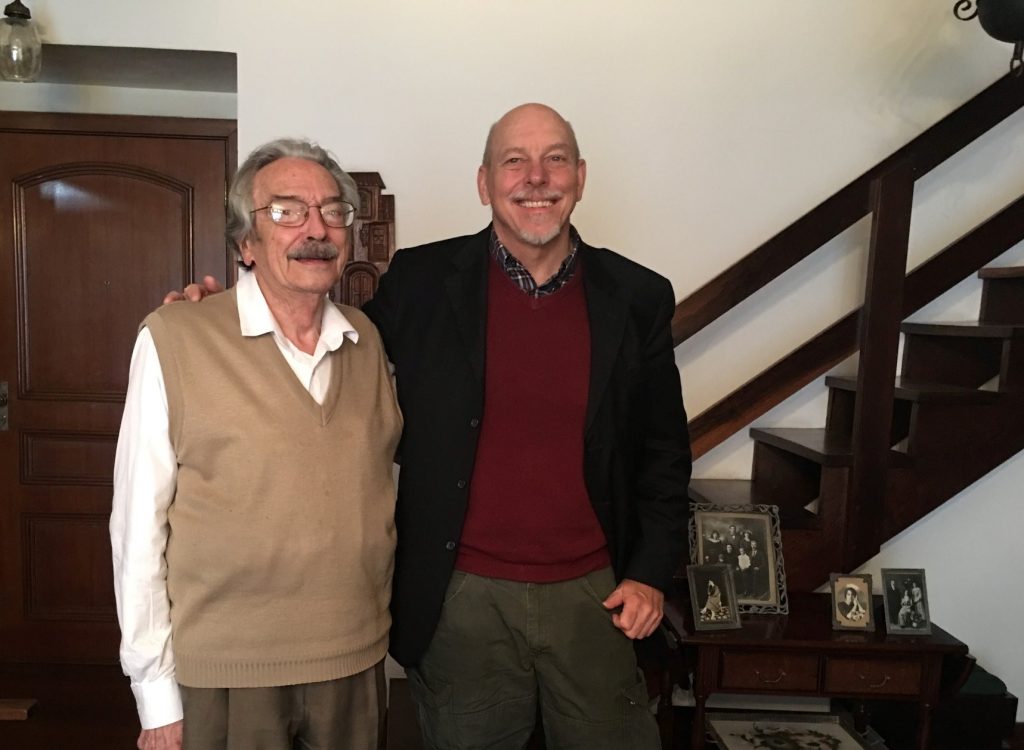
A maybe off-beat but rewarding “event” was my visit with Paulo Agustoni. Paulo had been working for the USG for more forty years by the time I started in the FS and he was waiting from me when I took up my first post in Porto Alegre back in 1985. All counted, Paulo would spend more than fifty (50) years in the service of the United States of America. He showed me his service pins from ten, twenty, thirty and forty years of service. They evidently do not have one for fifty. It so rarely comes up. Paulo must be one of the longest-serving employees in the USG. We will not soon see his like again.
I visited Paulo at his home in Porto Alegre on a rainy Sunday morning. He is now 91 years old. It was a great history lesson to hear him talk and I just enjoyed meeting and reminiscing with an old friend. I also got some insights into the immigration history of southern Brazil, things I had not known about Paulo or the State of Rio Grande do Sul. Of course, my couple of years with him 1985-8 representing only a little wrinkle in time for his long career. Nevertheless, I heard from multiple “grapevine” sources that my visit had been an important day for him. I was happy to do it.
Talking Taxi
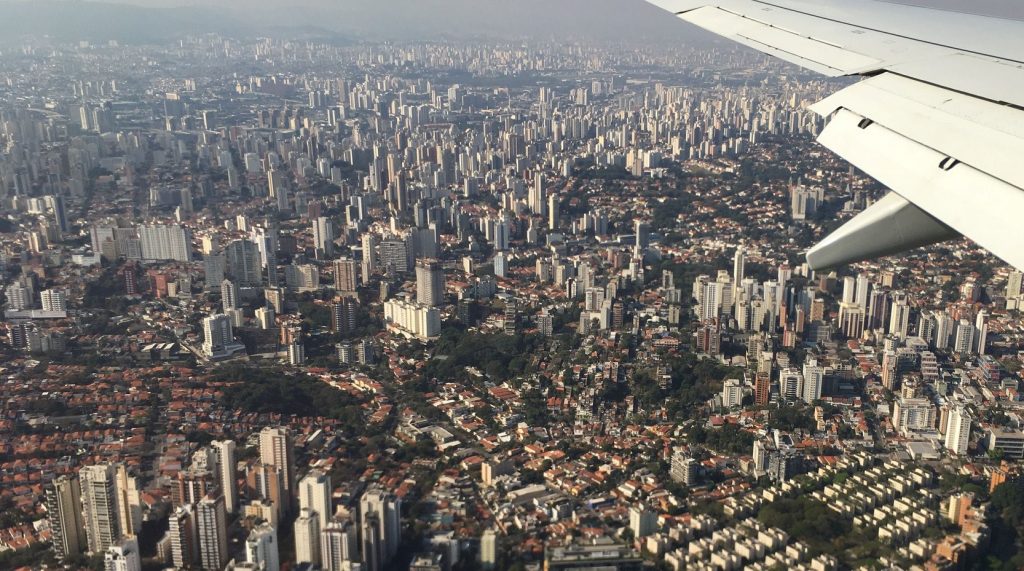
Taxi drivers are often a source of good information. I talked to them less after I figured out I could walk so many places in São Paulo, but I learned a few things nevertheless.
I find it surprising that the drivers do not immediately guess where I am from. Of course, they know that I am some kind of outsider. We Americans think that others think about us more than they really do. Taxi drivers are aware of the USA. How could they not be? But the USA is not top of mind for them. They have plenty of other problems, hopes and dreams. I have did asked any of them specifically what they think of the USA and none volunteered any general attitudes, although many have friends or relatives who have been to the USA. Some of their questions, however, illustrate their impression. One driver asked me if we had homeless in the USA. Another asked if we had traffic that requires a rodizio (where different license numbers cannot enter town during rush hour on different days). I talked to one guy about relative prices. Food is generally cheaper in Brazil than in the USA, but not in relation to salaries, and many other sorts of good, electronics for example, are more expensive both nominally and in absolute numbers.
Some Routine
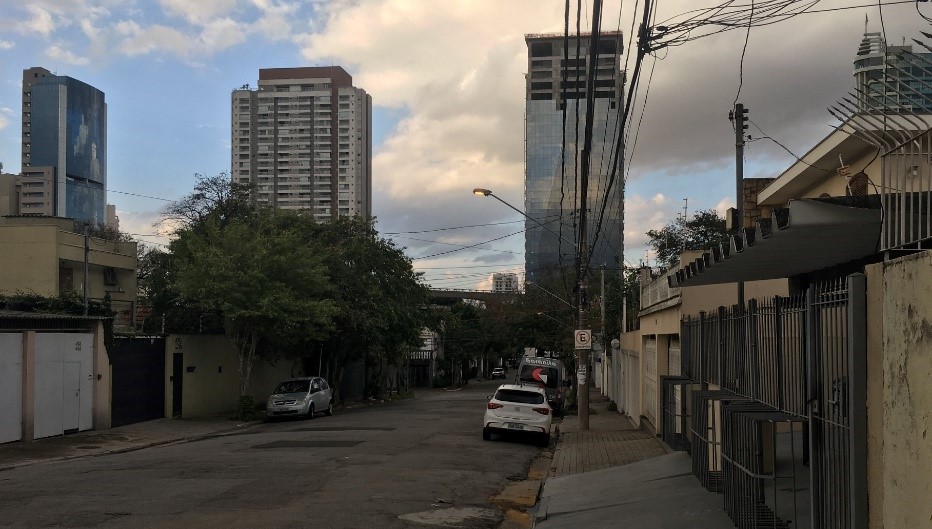
My assignment was to hold the post and that I did also in those thing that fall between the banal and the mundane. I attended the mandatory meetings and tried to give useful advice, drawing on my experience, about upcoming official visits, media and meetings. I signed, cleared and commented as appropriate. I never much liked this part of the job, but it seems a lot less onerous when you know it is not your fate to be doing it for very long. My grants warrant was no longer valid. It would have been useful to post for me to have a valid grants warrant, but that is maybe a consideration for another time. I took part in the briefings, most notably (i.e. I actually produced notes) for the Smart Cities trade mission and at the social event at the CG’s residence I interacted with the USA representatives and their Brazilian colleagues, I think to some benefit for connections and I interacted with the advance team for a potential visit of Alex Azar, head of Health and Human Services.
Business Cards: Prosaic & Exotic
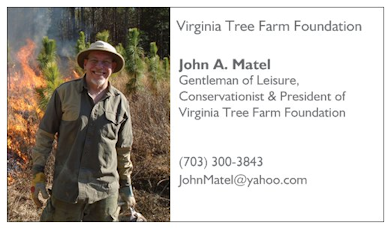
I brought with me around 100 business cards with only my name, email and the State Department golden eagle, those fancy and expensive Department of State variety. I had them made years ago when I was between tours and wanted something to give. I still had a box left. I like to give cards and entice my interlocutors reciprocate. My memory for names is weak and the card also gives me an email to follow up. I usually write notes or send something if I think we have some connection. I very quickly ran out of the State Department cards and had to resort to my personal cards. My personal cards were popular. Several people commented on them and a couple people approached me to ask for one, evidently having been shown one by someone else. I think the picture does it – me standing smiling in front of a forest fire – but people also comment on my gentleman of leisure title. The big problem with my personal cards is that I need to explain my status. This is good and bad. On the one hand, it tends to hold the person long enough to make that personal connection. On the other hand, it is confusing. At one event, they made a name tag for me that said, “Consul for Virginia Tree Farm.” On the third hand (yes, third. Who knew?), it does allow them to find me later, after I am gone from São Paulo, not sure if that is entirely good or bad. One interesting permutation, I got a call asking me to meet someone at CETESB (São Paulo’s environmental regulatory agency), seemed a useful meeting, so I went. They wanted to see me because of the card. Someone showed the card to them and they were intrigued by the picture and the function. We talked about the need for certification of timber products, among other things. It fits generally (vaguely) in our Mission goals, but I was speaking more as a subject matter “expert” (I dislike using that term for myself) more than a representative.
Human Relations
I will assert that I improved morale among the LES. Since they will be among the potential readers of this report, I hope I am right. I knew most of them from previous tours and visits. I think they benefited from having me around. I served in Brazil in a remarkable time. The Brazilian economy was booming. People were optimistic about the future. In our particular work, Science w/o Borders, English w/o Borders and various outreach and exchange programs were reaching their apogees, or at least local peaks. These were good old days, objectively and make to shine even more lustrously by the passage of time. I could be a souvenir of that.
I also like to think that I improve the collective intelligence of any group I join. My preferred explanation for this is that I am smart and energetic, but I suspect that the real reason might be that I am obtuse but persistent enough that people have to explain things to me and in process are motivated to think through their ideas in new ways.
Whenever I reached out to contacts, I did it through my LES colleagues. I think that I provided a good pretext for outreach. I tried to make the contact and then let them get to their business.
Grateful for the Chance to Do it Again
I enjoyed being in Brazil again and in São Paulo for a longer time than ever before. I enjoyed trying to revive my Portuguese and reach out to once and future contacts. I walked many of the places I needed to go, including usually the hour and fifteen-minute walk to and from the Consulate-General from my hotel. I got to know São Paulo from the slower, pedestrian perspective. There is a lot more to this great and big city than you can easily see from the window of a fast-moving car. Of course, in São Paulo traffic is rarely fast-moving, but in those cases you too often see only the brake lights of the cars around. There is some crime in São Paulo (I hear) but I did not and do not feel the city was a very threatening place, if you are aware of where you are going. I was not a victim of crime, at least I hope not. I am writing this on my penultimate day. Could be I am ultimately unlucky.
I did not achieve all the goals I set out for myself. My biggest gap was not being able to do a more comprehensive assessment of Science w/o Borders, but that was a task beyond my reach, as I determined when I started to work on it. I did an active program of meetings and discussions. I reached out to Brazilians in some way every single one of my 42 days in Brazil save one – Sunday August 26, when I had no appointments and it rained most of the day. I hunkered down. Some random folks that I approached to talk about … whatever … may just remember the crazy American who wanted to talk to them about their work and thoughts, but I think they will remember.
I coulda/shoulda/woulda done more, but I think I did a lot in 42 days. It is was a great experience but I treated my time as sprint, rather than the marathon if I had more time. I am kind of tired now and ready to go home, even with some things I wanted to do still undone. Anyway, a man’s reach should exceed his grasp, else what is a heaven for.
All my pictures are from my 42 days in Brazil except the one below. That is my Virginia tree farm. Got things to do, trees to manage. You don’t think trees will just grow by themselves, do you?
As a parting thought, let me say that my tree farming has informed my understanding of everything else. I see complex ecological relationships in all human interactions and have implicitly and explicitly applied ecological principles to my work in Brazil, and elsewhere. Trying to find insights in complex adaptive systems is a true joy, whether ecology on the farm or ecology in the community.
I have been lucky enough to have diverse interests and lots of opportunities to examine & indulge them. You need not decide what you “really” like best when you have options. I have long noticed, however, that when my mind wanders, it mostly wanders into the woods, so it will be nice to be back.
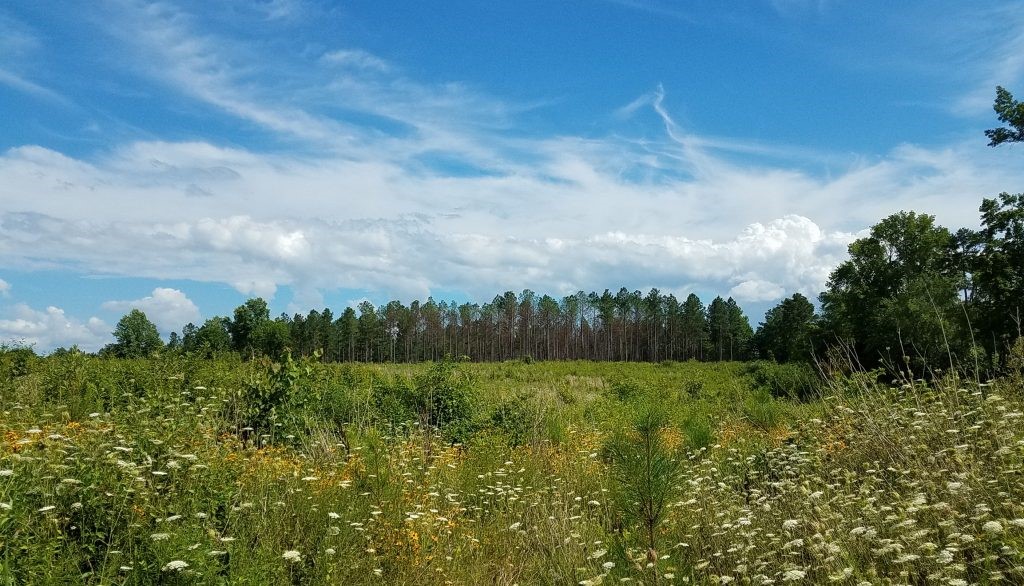
Thank you,
John Matel – Temporary Diplomat, Gentleman of Leisure, Conservationist & Tree Farmer
